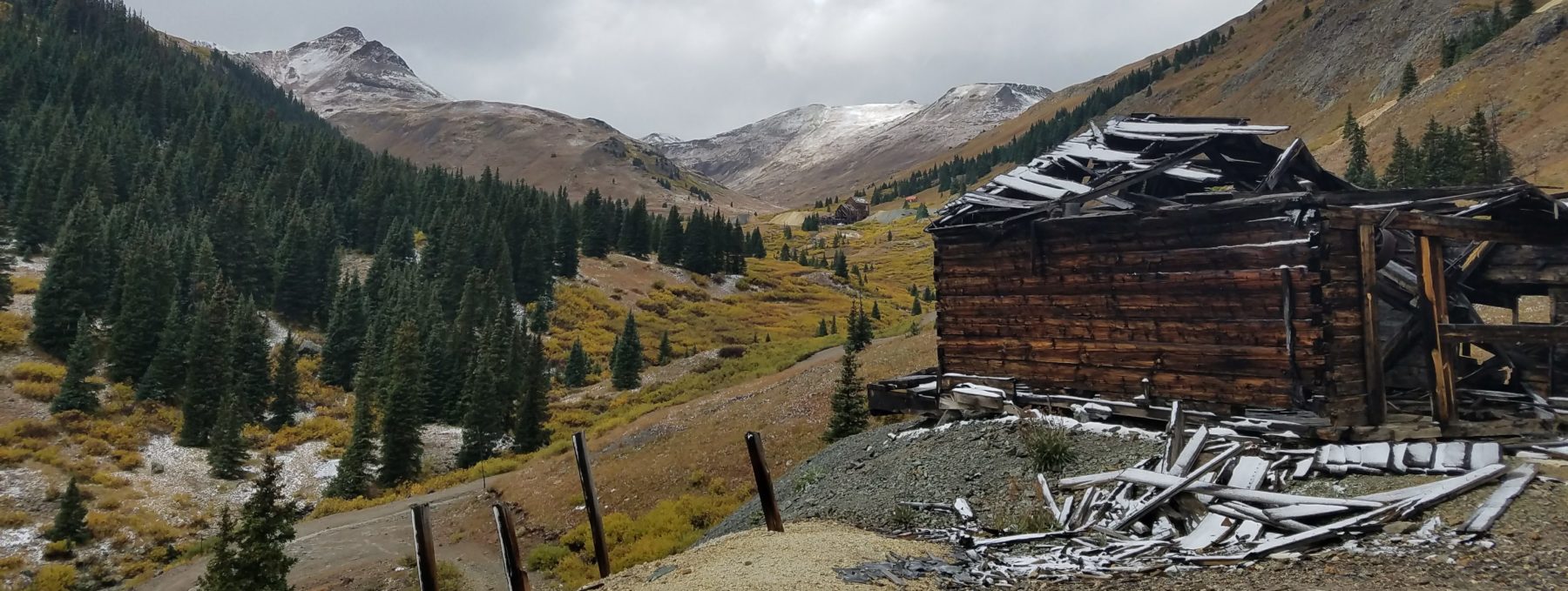This is a big step forward for protecting the rivers and taxpayer dollars in Colorado! While the federal 1872 Mining Law is still in desperate need of reform, this improvement for Colorado provides long overdue protections for our water resources and ensures industry, not taxpayers, are responsible for clean-up after a mine closes.
Looking back
The Gold King Mine spill of August 2015 was a visceral reminder of the water quality and public health risks associated with hard-rock mining operations. Colorado alone is home to 23,000 inactive mine sites and more than 1,600 miles of rivers and streams across the state have been negatively impacted, including waters of the Arkansas, Animas, Eagle, Big Thompson, Gunnison, South Platte, and Uncompahgre rivers.
Moving forward
Fortunately, best mining practices to protect water resources have drastically improved over the last century, making it possible to avoid mistakes that lead to disasters like the Gold King spill and many others before it. And now, after years of effort and collaboration with our conservation partners, House Bill 1113 has passed the Colorado legislature on a bi-partisan vote, and will improve the Colorado Mined Land Reclamation Act to safeguard water quality during hard-rock mining operations.
After Governor Polis’ signature, HB 1113 will:
- Protect clean water by including water quality protection in the calculation of bonds required when issuing new mining permits. Current state law only requires that mines restore impacted land – not water.
- Protect rivers by ensuring that mining operators develop a plan for water quality treatment, including an end date, to avoid more perpetually polluting mines.
- Protect taxpayers by prohibiting self-bonding for hard-rock mines, aligning our laws with the majority of states and federal agencies. Companies would no longer be able to simply promise to cleanup after mining has ended, but would instead be required to back up their promise with real financial resources or insurance policies.
Until now, Colorado law did not provide these safeguards.
We applaud the efforts of the bill’s sponsors, Representatives Dylan Roberts, Barbara McLachlan, and Senator Donovan, for introducing these important, common-sense reforms.
See our full press release below.
FOR IMMEDIATE RELEASE
March 18, 2019
Conservation groups praise passage of bill to protect water from mining impacts
Colorado HB 19-1113 prevents ‘perpetual pollution’ at mines and limits fiscal risks
DENVER – Today, the Colorado General Assembly made its final vote to approve HB 19-1113, a bill that will protect water quality at hardrock mines in the state and reduce risks to taxpayers. The bill enacts three important reforms:
- Specifies that the Department of Reclamation, Mining and Safety has authority to require bonds to protect water quality;
- Requires companies to demonstrate that water quality will be restored after mining ceases and that permanent water treatment will not be the final result; and,
- Directs hardrock mining companies to provide financial assurances in the form of real assets before they begin operations. The bill also gives the state the authority it needs to include the costs of water quality treatment in mine bonds.
A coalition of conservation groups issued the following statements praising the bill’s passage:
“HB 1113 is an important step forward to protect Colorado’s rivers and streams from devastating and permanent impacts from mining. After the Gold King Mine spill in 2015, we understood how important it was to pass protective legislation to ensure that future mines in Colorado are no longer allowed to become perpetual polluters by design. From here on out, mines will have to prove up front that they will be able to fully restore water quality after final closure.”
- Marcel Gaztambide, Animas Riverkeeper, San Juan Citizens Alliance.
“The bill strikes a balance that requires future hardrock mines to provide sufficient scientific analysis to protect water quality over the long term. Historic mining practices have left a devastating legacy of pollution and impaired rivers and streams across Colorado. HB 1113 ensures that communities will be protected in the future and that the destructive practices of the past will be left in the past.”
- Lexi Tuddenham, Director, Sheep Mountain Alliance
“Colorado taxpayers have been burdened by the costs of running water treatment plants at hardrock mines in order to guarantee that the water is clean enough to be discharged into streams, from the San Juan Mountains, to Clear Creek, to the Eagle Mine near Minturn. For example, the Summitville Mine in the San Juans went bankrupt in the 1990s, and is now a Superfund site that costs taxpayers $2 million a year just to run the water treatment plant. That’s an outcome that HB 1113 will prevent.”
- Josh Kuhn, Water Advocate, Conservation Colorado
“Ending self-bonds and requiring enough money up front to pay for cleanup is an important step forward in protecting communities and the environment from irresponsible mining. HB 19-1113 is also a significant advance in efforts to reduce the risks from perpetual pollution. This puts Colorado ahead of many other states in the nation, where these destructive mining practices are still being approved despite the overwhelming risks.”
- Pete Dronkers, Southwest Circuit Rider, Earthworks
“Colorado is now a leader in protecting the environment from irresponsible mining practices. By enacting these reforms, Colorado is pushing the envelope and striking the right balance between protecting the environment and allowing mines to operate in a way that benefits the economy without leaving a lasting legacy of damage.”
- Jennifer Thurston, Director, INFORM
Contact: Garrett Garner-Wells, Conservation Colorado garrett@conservationco.org
Brendan McLaughlin, Earthworks bmclaughlin@earthworksaction.org
Marcel Gaztambide, San Juan Citizens Alliance marcel@sanjuancitizens.org
Lexi Tuddenham, Sheep Mountain Alliance lexi@sheepmountainalliance.org
Jennifer Thurston, INFORM jennifer@informcolorado.org
###
HB 19-1113 was supported by a coalition of environmental groups working in Colorado, including Conservation Colorado, Earthworks, San Juan Citizens Alliance, Sheep Mountain Alliance, Information Network for Responsible Mining (INFORM), Western Colorado Alliance for Community Action, Environment Colorado, Colorado Trout Unlimited and Colorado Chapter of the Sierra Club. The bill was endorsed by community groups across the state, as well as local governments in mining-affected areas and numerous water districts and boards.



